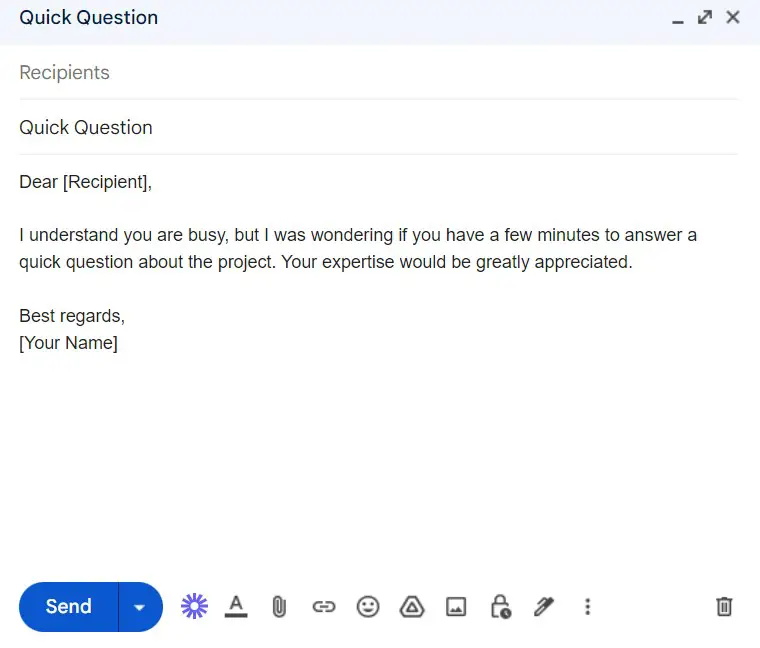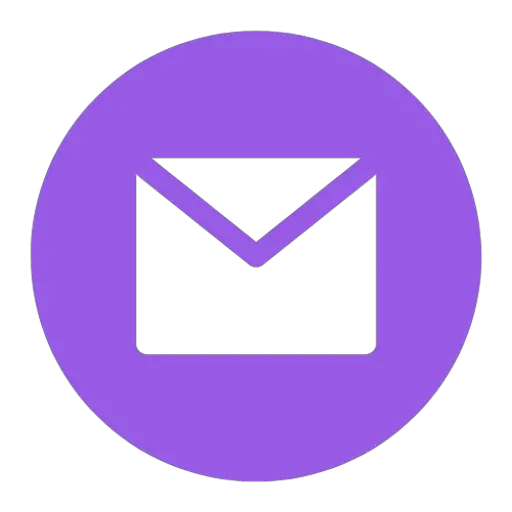When writing an email, it’s important to be mindful of the recipient’s time and workload.
One way to convey this is by using the phrase “I understand you are busy” in the email.
In this article, we’ll explore how to use this phrase effectively, provide 10 examples, and suggest alternative ways to convey the same message.
Contents
- Using “I Understand You Are Busy” in an Email
- “I Understand You Are Busy” Email Samples
- Example 1 – Subject: Quick Question
- Example 2 – Subject: Follow-Up on Meeting
- Example 3 – Subject: Request for Feedback
- Example 4 – Subject: Thank You for Your Time
- Example 5 – Subject: Reminder of Upcoming Deadline
- Example 6 – Subject: Introduction
- Example 7 – Subject: Request for Extension
- Example 8 – Subject: Invitation to Meeting
- Example 9 – Subject: Request for Recommendation
- Example 10 – Subject: Congratulations on Promotion
- Alternative Ways to Say “I Understand You Are Busy” in an Email
Using “I Understand You Are Busy” in an Email
When using the phrase “I understand you are busy” in an email, it’s important to be genuine and specific. Here are some guidelines to follow:
1. Acknowledge the recipient’s workload: Start by acknowledging that you understand the recipient is busy.
2. Explain the reason for the email: Provide a brief explanation of why you’re reaching out.
3. Offer assistance: If possible, offer to help or suggest ways to make the recipient’s workload easier.
4. Be concise: Keep the email short and to the point.
Below, we’ve created 10 email examples to show you how to use the phrase.
“I Understand You Are Busy” Email Samples
Example 1 – Subject: Quick Question
Dear [Recipient],
I understand you are busy, but I was wondering if you have a few minutes to answer a quick question about the project. Your expertise would be greatly appreciated.
Best regards,
[Your Name]
Example 2 – Subject: Follow-Up on Meeting
Dear [Recipient],
I understand you are busy, but I wanted to follow up on our meeting last week regarding the project timeline. Could you please provide an update on the status of the project? Let me know if there’s anything I can do to help.
Thank you,
[Your Name]
Example 3 – Subject: Request for Feedback
Dear [Recipient],
I understand you are busy, but I wanted to reach out to request feedback on the proposal. Your insights would be valuable as we move forward with the project. If you have any suggestions or comments, please let me know.
Best regards,
[Your Name]
Example 4 – Subject: Thank You for Your Time
Dear [Recipient],
I understand you are busy, so I appreciate you taking the time to meet with me last week. Your feedback on the project was very helpful, and I look forward to implementing your suggestions.
Thank you,
[Your Name]
Example 5 – Subject: Reminder of Upcoming Deadline
Dear [Recipient],
I understand you are busy, but I wanted to remind you that the deadline for the project is approaching. Please let me know if you need any assistance or if there are any issues that need to be addressed.
Best regards,
[Your Name]
Example 6 – Subject: Introduction
Dear [Recipient],
I understand you are busy, so I’ll keep this brief. I wanted to introduce myself and let you know that I’ll be working with you on the new project. If you have any questions or concerns, please don’t hesitate to reach out.
Best regards,
[Your Name]
Example 7 – Subject: Request for Extension
Dear [Recipient],
I understand you are busy, but I wanted to request an extension on the deadline for the project. We’ve encountered some unexpected challenges, and I believe that more time is needed to complete the work. Please let me know if this is possible.
Thank you,
[Your Name]
Example 8 – Subject: Invitation to Meeting
Dear [Recipient],
I understand you are busy, but I wanted to invite you to a meeting next week to discuss the new project. Your presence would be greatly appreciated, and I believe that your insights would be valuable to the team.
Best regards,
[Your Name]
Example 9 – Subject: Request for Recommendation
Dear [Recipient],
I understand you are busy, but I wanted to request a recommendation for a colleague who is applying for a position in our department. I believe that your endorsement would carry significant weight, and it would mean a lot to the applicant. If you have the time, could you please provide a brief recommendation?
Thank you,
[Your Name]
Example 10 – Subject: Congratulations on Promotion
Dear [Recipient],
I understand you are busy, but I wanted to take a moment to congratulate you on your recent promotion. This is a well-deserved recognition of your hard work and dedication, and I’m excited to see what you’ll achieve in your new role.
Best regards,
[Your Name]
Alternative Ways to Say “I Understand You Are Busy” in an Email
While “I understand you are busy” is a useful phrase to convey consideration, it’s important to vary your language to avoid sounding repetitive. Here are some alternative ways to express the same sentiment:
- I appreciate that you have a lot on your plate.
- I know you’re juggling a lot of responsibilities.
- Given your busy schedule, I’ll keep this brief.
- I understand your time is valuable, so I’ll get right to the point.
- I realize you’re likely swamped, but I wanted to reach out.
- I’m mindful of your workload, so I’ll make this quick.
- I understand that you’re likely in the middle of other tasks.
- I recognize that you have a lot going on, but I wanted to touch base.
- I’m aware that you’re likely inundated with emails, but I wanted to follow up.
- I understand your time is precious, so I’ll keep this short.
In summary, using the phrase “I understand you are busy” in an email is a simple yet effective way to show consideration for the recipient’s time and workload. By following the guidelines and examples provided in this article and varying your language, you can convey the same message in a way that is genuine and respectful.


